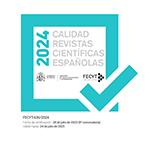EVAAN: An empirical verification argument against naturalism
Abstract
Alvin Plantinga’s evolutionary argument against naturalism (EAAN) claims that if both naturalism (N) and evolutionary theory (E) are true, then all our beliefs are unreliable (premiss 1). Consequently, given N&E, the belief in N&E is unreliable (premiss 2) and N&E is self-defeating (conclusion). My empirical verification argument against naturalism (EVAAN) is more cautious and improves Plantinga’s EAAN by withstanding a rejoinder of the evolutionary naturalist to premiss 1. EVAAN claims that metaphysical beliefs are unreliable, given N&E (premiss 1a). This anticipates the evolutionary naturalist’s claim that empirical verification plays a crucial role in peer assessments and sexual selection of intelligence, and that, therefore, N&E makes empirically verifiable beliefs often reliable (premiss-1 rejoinder). However, even then it can be argued that the belief in N&E is unreliable, given N&E (premiss 2), because N&E is metaphysical (premiss 1b) and therefore not empirically verifiable. My EVAAN distinguishes reliably verifiable intelligence from metaphysical intelligence and claims that, if N&E is true, humans are lacking metaphysical intelligence. This paper also contains an argument against Plantinga’s EAAN, by supporting the premiss-1 rejoinder.
Downloads
##submission.format##
Lizenz
La revista Logos. Anales del Seminario de Metafísica, para fomentar el intercambio global del conocimiento, facilita el acceso sin restricciones a sus contenidos desde el momento de su publicación en la presente edición electrónica, y por eso es una revista de acceso abierto. Los originales publicados en esta revista son propiedad de la Universidad Complutense de Madrid y es obligatorio citar su procedencia en cualquier reproducción total o parcial. Todos los contenidos se distribuyen bajo una licencia de uso y distribución Creative Commons Reconocimiento 4.0 (CC BY 4.0). Esta circunstancia ha de hacerse constar expresamente de esta forma cuando sea necesario. Puede consultar la versión informativa y el texto legal de la licencia.











